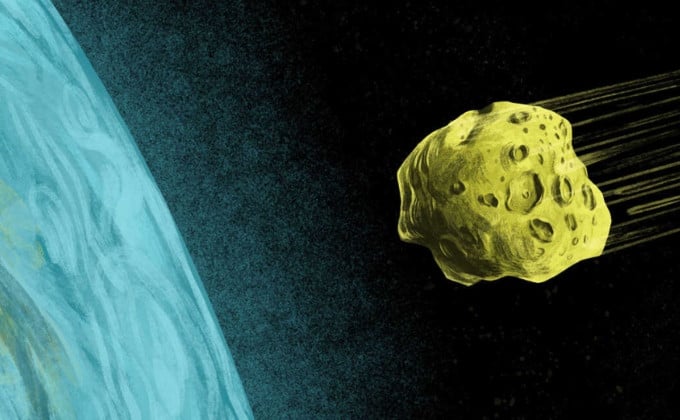

A sample from the asteroid Ryugu, brought back to Earth by Japan's Hayabusa2 spacecraft, has been found to host Earth-based microorganisms, showcasing the incredible adaptability of terrestrial life.
The discovery, published in Meteoritics & Planetary Science, highlights the persistent challenge of contamination in space exploration.
The Hayabusa2 mission, launched by the Japan Aerospace Exploration Agency (JAXA) in 2014, retrieved samples from Ryugu in 2019. These were returned to Earth in December 2020.
The mission’s goal was to study the ancient asteroid’s pristine material, thought to date back 4.5 billion years. However, scientists discovered that Earth-based bacteria had colonised the sample after exposure to the atmosphere.
Matthew Genge, leading the study at Imperial College London, explained: “We found microorganisms within the asteroid sample shortly after it was exposed to Earth’s environment.
These microbes, likely common soil bacteria such as Bacillus, rapidly multiplied before dying off.”
Using nano-X-ray computed tomography, researchers confirmed that the sample was free of microbes before it was processed. However, within a week of atmospheric exposure, 11 microbes were detected, growing to 147 within another week.
Although the findings eliminate the possibility of extraterrestrial life in the sample, they underline the resilience of Earth microorganisms.
Genge noted, “This demonstrates how easily terrestrial microbes can colonize extraterrestrial materials, posing a risk of contamination in planetary exploration missions.”
Planetary protection protocols aim to prevent such contamination, but this incident underscores the difficulties in preserving the pristine nature of extraterrestrial samples.
The research has significant implications for future missions, particularly those searching for microbial life on Mars and other planets.
While the Ryugu sample was compromised, its broader scientific value remains intact. Previous studies revealed that the asteroid contains some of the most primitive material ever analyzed on Earth, formed just 5 million years after the solar system’s birth.
This makes Ryugu a key to understanding planetary formation.
The team continues to analyse asteroid samples, including material from Bennu, with hopes of preventing similar contamination in future studies.
As Genge remarked, “Our findings emphasise the need for stringent measures to safeguard the integrity of extraterrestrial materials, especially as we search for signs of life beyond Earth.”